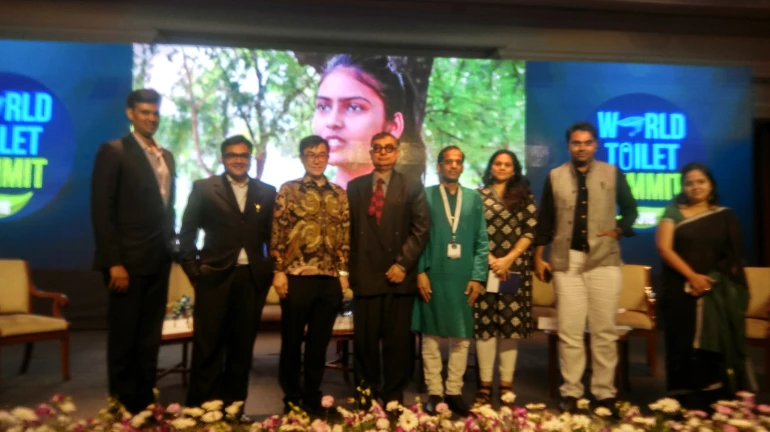
Open defecation, less number of public toilets has been a growing concern in India. According to the statistics shared by Patricia O'Hayer, Global Head Communications & Government Affairs at RB, 1000 children die while 2,000,000 people die each year from water and sanitation-related diarrhea diseases as they are devoid of sanitation and water facilities. She further added that around 1.8 billion people are drinking water that is contaminated with fecal matter and 80 per cent water released is untreated.
According to Patricia, if the numbers mentioned above are not brought under control, it will be difficult to achieve the target of making the world free of open defecation by 2030.
Saying this, she congratulated India for undertaking the Swachh Bharat Mission mentioning that she would be crusading this campaign across the world.
Also Read: Twinkle Khanna To Advocate Menstrual Hygiene Along With Save The Children NGO
Speaking during the ‘World Toilet Summit 2018’, which was organised by World Toilet Organisation, co-organiser Ecosan Services Foundation with a theme “Can the world be open defecation free by 2030”, took place on November 19-20, 2018, in Mumbai, India.
Jack Sim, Founder of World Toilet Organization, spoke about architecture and its vital role in building toilets.
If one goes to the toilet to relieve himself, and if there is a dustbin placed near the toilet, he will throw the tissue paper in the bin or else he will flush it in the drain. Such minor things should be focused,” said Jack Sim.
Meanwhile, Dr. Vijayaraghavan Chariar, Centre for Rural Development & Technology, IIT, Delhi said that more than architecture, availability of toilets is very important.
One of my students, who has been researching about toilets, informed me that 75 per cent of the toilets that are built are dysfunctional and 90 per cent don't have water. Public sanitation must have water. There is a need of investment but at the same time, one should focus on aesthetics more than the infrastructure. At this point in time, we need more eco-friendly toilets, as people travel 50 miles to reach their destination,” he said.
Likewise, one of the panelists, Dr Y. Malini Reddy is an Associate professor at the Administrative Staff College of India, highlighted the need for toilets for transgenders.
When we launched a She-toilet in Warangal at Telangana, we put up a signage which clearly indicates that this toilet is for women and transgenders as well. Though Supreme Court has ruled out in the favour of transgenders stating that they can use the ladies toilet, many women feel uncomfortable when they use one. Hence, we are planning to build toilets solely for transgenders,” she said.
Reddy added that it is high time that there should be toilets in every 500 metres and more and more CSR activities related the same should be carried out.





